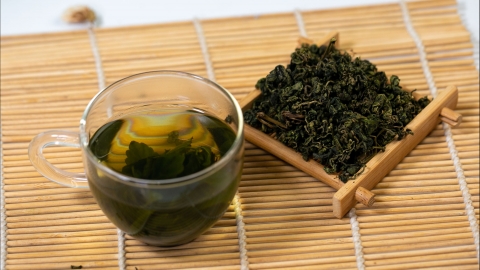Can Gynostemma pentaphyllum be steeped in water for long-term consumption?
Generally speaking, Gynostemma pentaphyllum is not recommended for long-term consumption as a steeped tea. Detailed explanations are as follows:

Gynostemma pentaphyllum is a traditional Chinese herb known for various therapeutic effects, including clearing heat and detoxifying the body, enhancing vital energy, calming the mind, lowering blood lipids, reducing blood pressure, and controlling blood sugar levels. Drinking moderate amounts of Gynostemma tea may help regulate bodily functions and improve overall health. However, Gynostemma is cold in nature, and long-term consumption may irritate the gastrointestinal tract, causing symptoms such as abdominal pain, diarrhea, nausea, and vomiting. This risk is particularly higher for individuals with cold deficiency of the spleen and stomach. Gynostemma has blood pressure- and blood sugar-lowering effects; prolonged and excessive consumption may lead to excessively low blood pressure and blood sugar levels, causing symptoms such as dizziness, fatigue, palpitations, and sweating.
Long-term use of Gynostemma may increase coldness in the body, making individuals more sensitive to cold. Gynostemma may also interact with certain medications, such as antihypertensive drugs and hypoglycemic agents, potentially affecting drug efficacy or increasing the risk of side effects. Furthermore, Gynostemma is not suitable for everyone. Pregnant women, nursing mothers, children, and individuals allergic to Gynostemma should use it cautiously. Special populations, including those with cold constitution, spleen-stomach cold deficiency, hypotension, or hypoglycemia, should also exercise caution when using it.
It is advisable to consult a physician before consuming Gynostemma tea to ensure safety. Additionally, attention should be paid to controlling the dosage to avoid excessive intake. If adverse symptoms occur, consumption should be stopped immediately and medical advice sought.









